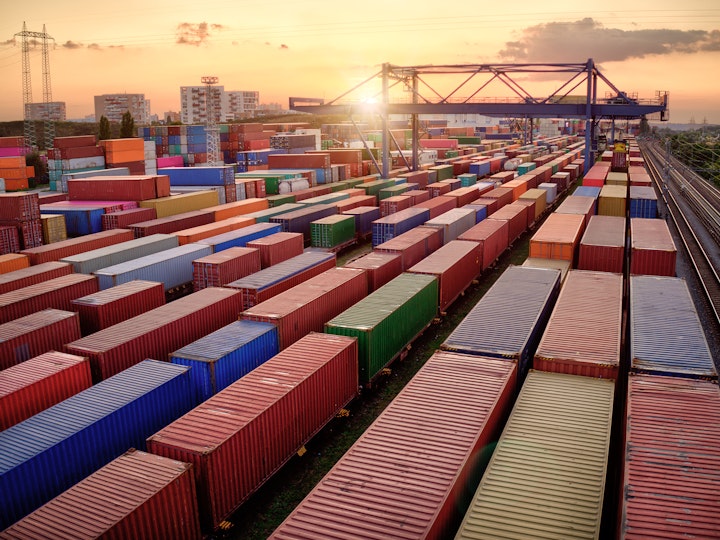European Perspectives: Towards a more assertive EU trade policy
What does the future of trade policy look like in the European Union after Britain's exit? Dr Stefan Schepers discusses in our latest European Perspectives.

A more assertive EU trade policy is not good news for British exporters. Being outside the EU, they could become subject in future to the anti-coercion measures that the EU Commission is now developing. The risk is all the higher given the many uncertainties left by the Trade and Cooperation Agreement (TCA) hastily concluded in December.
Exporters know that they still have to respect EU rules in order to maintain access to the EU single market. Should disagreement arise, the arbitration mechanism provided by the TCA will be used. Hidden in the rhetoric of the UK government is the perception that regaining sovereignty on paper implies the same in practice. So if no agreement can be reached, because of political or other reasons, there may be a temptation to emulate the USA or China and to try to ignore or even to coerce the EU. New instruments, announced in October in the European Parliament and now under development in Brussels, will make this wishful thinking.
Coercion in international trade has been on the rise since the US Government under President Trump blocked the working of the Multilateral Dispute Settlement System, though China has long been using a wide arsenal of measures to coerce companies and countries. It can take various forms, such as trade and investment restrictions, discriminatory import taxes, refusing authorisations to business, intentional delays in trade flows, and even personal threats. International law is violated, or national law is applied in a discriminatory way. Perhaps the most open form of coercion is the extra-territorial sanctions imposed unilaterally by the US.
When taking office, new European Commission President Ursula von der Leyen announced that geopolitics would play henceforward a greater role in its policy. During the pandemic, calls by governments for more strategic autonomy of the EU found a receptive ear. Attempts by the British government to disrespect previous agreements, and currently its unilateral decision concerning Northern Irish border trade, further strengthened the view that something needed to be done. More and more countries are tempted to, or ignore their obligations under international or bilateral trade treaties. This not only hurts short-term EU economic interests, but it also undermines the fundamental principle, widely shared belief among the 27 governments and the Commission, of a rule-based international order.
This is not just for political reasons; the economic value chains that stretch across the single market imply that member states have a self-interest to stand together if coercion is attempted. If strategic sovereignty is to mean anything, the EU needs a comprehensive trade defence toolbox, with a variety of mechanisms, and a clear statement of mutual solidarity. The existence of this alone may deter others to try to use coercion lightly, will help the EU to gain influence and ensure a level playing field in line with World Trade Organization and international law. A report from the High Level Group on Trade Policy Innovation says global value chains of business and increasing geopolitical interdependence require an inclusive, open concept of strategic autonomy, including a toolkit of potential measures and counter-measures.
Another reason to develop new anti-coercion mechanisms is that EU bilateral free trade agreements increasingly include enforceable rules on sustainability, climate or social and human rights. However, they are sometimes perceived as EU coercion by other governments, and threats of counter-measures have been issued recently by some countries such as Brazil.
Various instruments are being considered in Brussels with two key objectives: to deter other countries and to minimise the impact of their coercion attempts/measures. The EU has not yet a legal instrument to respond to third party infringements of national sovereignty and its essential economic security interests using instruments such as trade tools, sanctions, vastly expanded export controls, or other extraterritorial measures. The competences for trade policy of the EU should imply trade defence too, therefore a Collective Trade Defence Mechanism is being considered, operating with similar checks and balances between Commission and Council as trade policy itself (via the Treaty based Trade Policy Committee). It would empower the Commission to take retaliatory measures against non-EU countries exercising coercion. Obviously, methods of evaluating costs of coercion measures must be developed to be able to plan targeted counter-actions and restore a level playing field.
There is also talk about a European Export Bank as an important instrument, facilitating European companies to operate outside the control of the American Office of Foreign Assets Control (OFAC) and the US Dollar. The role played by the US currency is a major obstacle for globally trading companies to circumvent unilateral US sanctions, such as in the case of Iran, while the OFAC is known to coerce companies and individuals alike, such as in the case of the North Stream II pipeline between Russia and Germany.
A specific area for future measures concerns data protection. EU companies are facing growing pressure from non-EU authorities (primarily USA, China) to transfer sensitive business data to them using various guises – vaguely defined national security or anti-terrorism. An EU-27 authority could protect European companies by requiring them to seek approval of certain sensitive data transfers to third countries. The EU’s GDPR has become a landmark regulation for privacy, but it is clear that the use and abuse of data by an ever-wider penetration of IT needs much wider protective action now.
Recently the EU made progress in agreeing a personal sanctions system. EU member states often struggle to find a way to respond reciprocally when third countries use sanctions to punish individuals and organisations. Personal sanctions, including travel bans, asset freezing, and prohibitions to provide economic resources, are now in place for serious violations of human rights. But they could also become a tool in trade policy, in particular with China (which has shown to be not averse of targeting individuals, such as the Canadian diplomats imprisoned). It would be important to have countries of the EEA participating in it (Norway, Switzerland) and to coordinate with other like-minded countries (UK, USA).
The legislative process has started in Brussels with an inception impact assessment and with a stakeholder consultation process. But a package of measures will not be long in coming, given the high political and economic interests at stake for the EU.
Dr Stefan Schepers is Visiting Professor European Studies at Henley Business School in the UK and Director of the African-European Centre for Investment and Trade, in Johannesburg, at Henley Africa.
Read the previous article in this series: Brexit or the march of folly?



